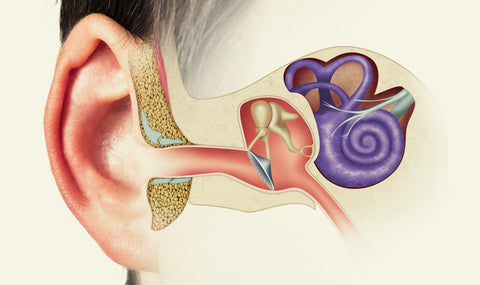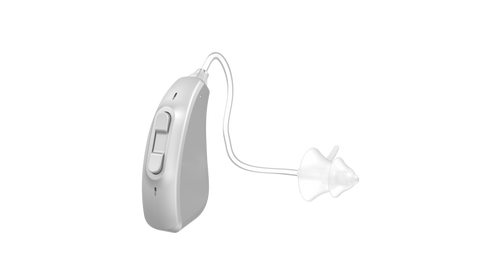
Can my deafness be cured?
The main concern about hearing loss treatment is often: "Can my deafness be cured?" "Why can other people's deafness be cured and mine can't?" "What if I can't be cured?" "I heard that hearing aids can cure deafness. Is it true?"
Before we answer your questions, let's understand the types of hearing loss.
Types of hearing loss

Hearing loss can be classified as conductive deafness, sensorineural deafness, and mixed deafness, depending on the hearing loss's nature.
Conductive deafness is often caused by lesions in the outer and middle ear, such as congenital malformations of the external and middle ear, secretory otitis media, acute and chronic suppurative otitis media, etc.
Sensorineural deafness is often caused by the inner ear and posts cochlear lesions, such as hereditary deafness, age-related deafness, drug-induced deafness, noise deafness, sudden deafness, and auditory neuroma.
Mixed deafness is often associated with both middle and inner ear pathologies, such as otosclerosis.
Part of hearing loss can be treated medically.

Some of these hearing loss conditions can be restored or improved with adequate medical treatment. For example, some conductive deafness can be fixed or improved through medication and surgery, such as removing cerumen from the external ear canal, repairing perforated eardrums, aspiration or drainage of middle ear fluid, and removal of cholesteatomas, and implantation of artificial auditory tuberosities.
There is a lack of effective treatment for sensorineural deafness. Suddenly, deafness is sensorineural deafness worthy of medical treatment. Still, due to the disease's diverse etiology, medical treatment is often unsatisfactory when the patient has a combination of tinnitus and vertigo.
Mixed deafness can be caused by the same disease or two unrelated conditions, thus requiring a comprehensive approach to the response. Because of the different nature and degree of hearing loss in all of us, some people's deafness can be treated and cured. In contrast, others have difficulty in doing so.
Choosing hearing aids, one of the alternative treatment options for hearing loss

For hearing loss where formal medical treatment has failed or is ineffective, we may recommend trying hearing intervention with a hearing aid. Hearing aid selection is currently the primary means of managing most sensorineural and partially conductive, mixed hearing losses.
Hearing aids are often used to help people with hearing loss achieve the following.
- The ability to quickly hear speech and environmental sounds that sound very faint without hearing aids.
- The ability to regain and maintain the ability to hear speech sounds and environmental sounds clearly in the relative quiet of everyday life.
- in noisy environments as well.
- Ensure that intense sounds are not amplified to an intolerable degree.
Have reasonable expectations of hearing aids
Let's be clear: The use of hearing aids is not a cure for deafness but rather a way to help patients overcome communication impairments caused by hearing loss or compensate for hearing problems leftover from medical treatment.
Just as a hearing aid can help a patient hear sounds, a hearing aid cannot replace the brain to distinguish sounds. The brain is ultimately responsible for understanding sounds. Patients who want to distinguish sounds need to make an effort to understand them through consistent use of hearing aids.
